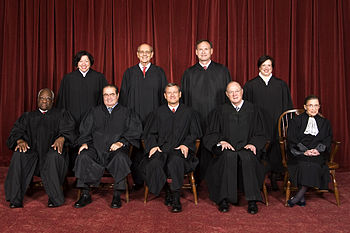By Jennifer Snook @sirjid
I have been called a lot of things. Some of them are even true.
However, a lot of things said about me are simply wrong, and not through malevolence. Most people simply don’t know how to appropriately refer to trans people and aspects of transgender life.
Gender dysphoria is the official diagnosis for transgender people. Dysphoria itself is an extreme feeling of discomfort. While some trans people do not experience it as a physical sensation, for others, it can be uncomfortable or downright painful in some circumstances.
Gender identity refers to the gender a person believes they are. It doesn’t necessarily have anything to do with how they look or act.
Gender expression refers to how someone looks and acts. Expression does not necessarily indicate a person’s gender.
Transitioning is the process of a transgender person changing their gender expression to match their gender identity. This is different for everyone who does it, and some choose not to at all.
Hormone replacement therapy (HRT) is the process of changing a person’s body chemistry to more closely match their preferred gender.
Sexual Reassignment Surgery (SRS) refers to any of several surgeries that change a person’s body to more closely match their preferred gender. Some transgender people dislike the term and prefer Gender Confirmation Surgery (GRS), though SRS is still the accepted medical term.
A transgender person is someone whose gender identity is different than the gender they were assigned at birth.
This covers a wide variety of people. There are those like myself, who were born with male reproductive organs, but identify as female, or vice versa.
Trans men identify as men and prefer male pronouns, while trans women identify as female and prefer female pronouns.
However, the term “transgender” also covers people who are non-binary. Non-binary people identify as neither male nor female, or a combination of the two.
Non-binary includes gender queer, a gender and nongender people, who feel apart from the gender spectrum altogether; and gender fluid people, whose identity changes from time to time.
For the most part, non-binary people use the singular pronoun ‘they,’ though there are exceptions and the best solution is always to ask.
Transsexual refers to someone who has undergone SRS and is largely considered outdated. The most common term these days is “post-op” (post-operation.)
Pre-op is also used to refer to someone who has not had the operation, but is less well-liked because it assumes the inevitability of SRS despite many trans people not wanting it for a variety of reasons.
Hermaphrodite is sometimes used to refer to trans people, but this is incorrect. Hermaphroditism is a form of intersexuality, which refers to a person who is born with both male and female sexual characteristics. While many intersex people are forced to be transgender due to society’s rigid acceptance of binary genders, they are not the same.
Cisgender, usually abbreviated to cis (pronounced “sis”), refers to anyone who is not transgender. But remember, not all cisgender people stick to so-called gender norms.
Cross-dressers wear clothing usually associated with a gender other than the one they identify with. They are usually men, as most modern male clothing has a unisex or female equivalent.
Transvestites are men who wear makeup. Many people dislike the term ‘transvestite’, though there are still people who identify as such.
Drag queens are men who dress as overtly stylized caricatures of women for entertainment. There are also drag kings: women who dress as men for the same reason. Recently, there has also been a movement of female drag queens.
There are many other words used to refer to trans people than those listed here, but most everything else is generally considered insulting. As a rule of thumb, if you learned the word from porn or Jerry Springer, don’t call someone that word.
Aside from direct insults, you should also avoid words that imply a gender that someone is uncomfortable with. For example, don’t call a trans woman ‘dude,’ even if you refer to cis women the same way. It is likely to make her uncomfortable.
Of course, you could always just call me a woman.



